Event Wrap-Up: Greener first-ever Sustainability London Meetup with Sustainability Week 2024
Guest post as part of the cloud native sustainability week
We are thrilled to share the highlights from organizing the first-ever CNCF Cloud Native Sustainability Week London 2024 Meetup hosted by Cloud Native Westminster during TAG ENV’s CNCF Cloud Native Sustainability Week 2024! This groundbreaking event brought together distinguished speakers and technology enthusiasts, united by a shared commitment to promoting sustainability through cloud-native practices. During this exciting session, we delivered three impactful presentations covering various aspects of sustainable computing, accompanied by engaging discussions and networking opportunities.
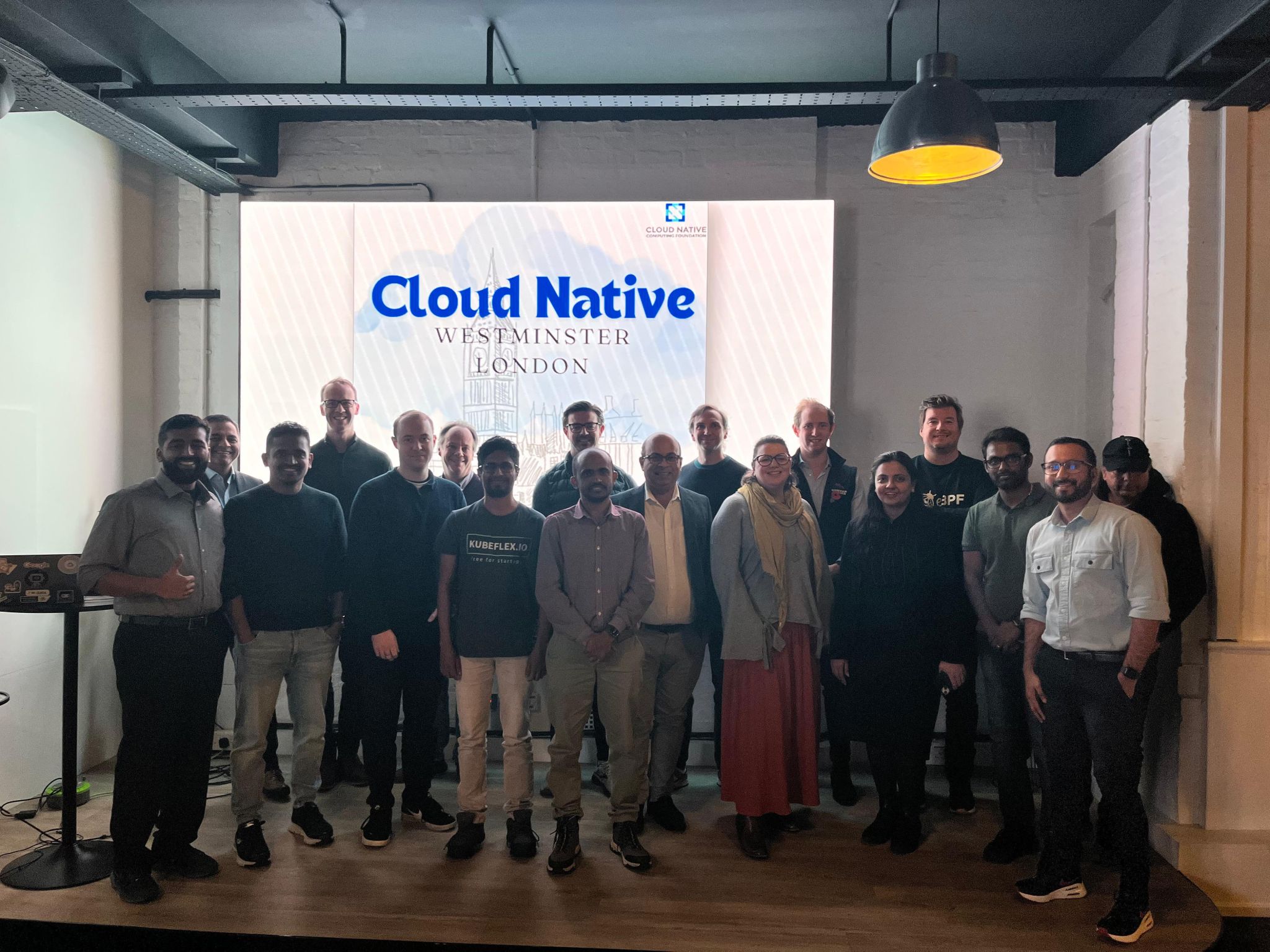
Keynote Highlights
The Three C’s: Cost, Carbon, and Cloud
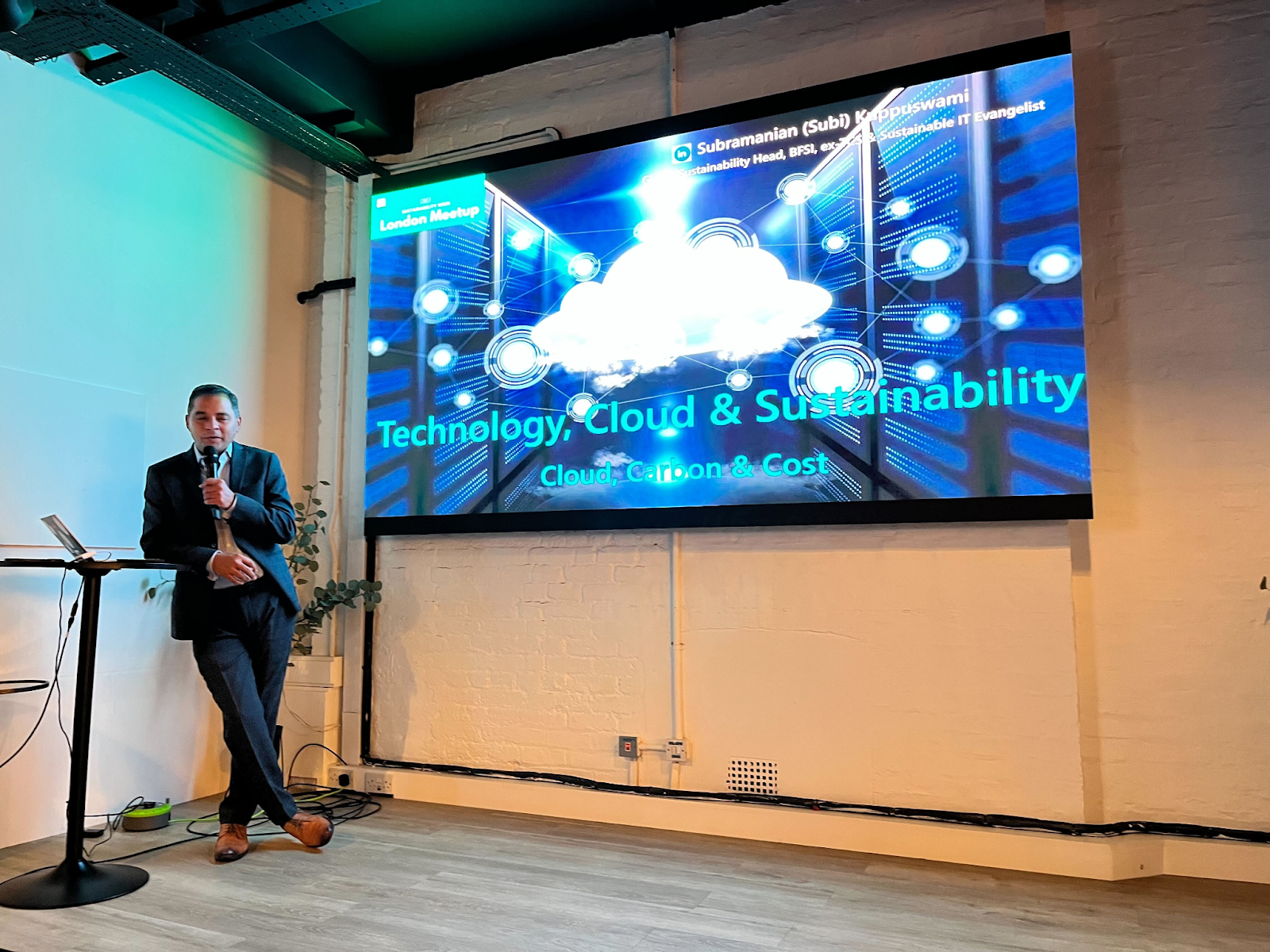
Our keynote speaker, Subramanian Kuppuswami, Global Sustainability Head for Banking, Financial Services & Insurance and one of 2024’s Top 25 Sustainability Leaders, opened the event with a compelling perspective on sustainability in technology. His presentation centered on the “3 C’s” framework—Cost, Carbon, and Cloud—which serves as foundational pillars for sustainable technology practices.
Kuppuswami drew an intriguing parallel between film photography and modern digital habits. While film photographers were inherently resource-conscious due to limited exposures, today’s digital convenience masks a growing CO₂ footprint. This shift exemplifies how technological advancement, without careful consideration, can lead to unsustainable practices.
The presentation revealed that the ICT industry currently accounts for 2.1–3.9% of global greenhouse emissions. While software’s carbon footprint is relatively lower than other sectors, it’s projected to increase significantly due to AI, GenAI, and ongoing digital transformation initiatives. Organizations are expanding their sustainability focus to address software’s energy impact throughout its lifecycle, but face challenges due to limited access to detailed energy and carbon data.
eBPF: Revolutionizing Data Center Efficiency
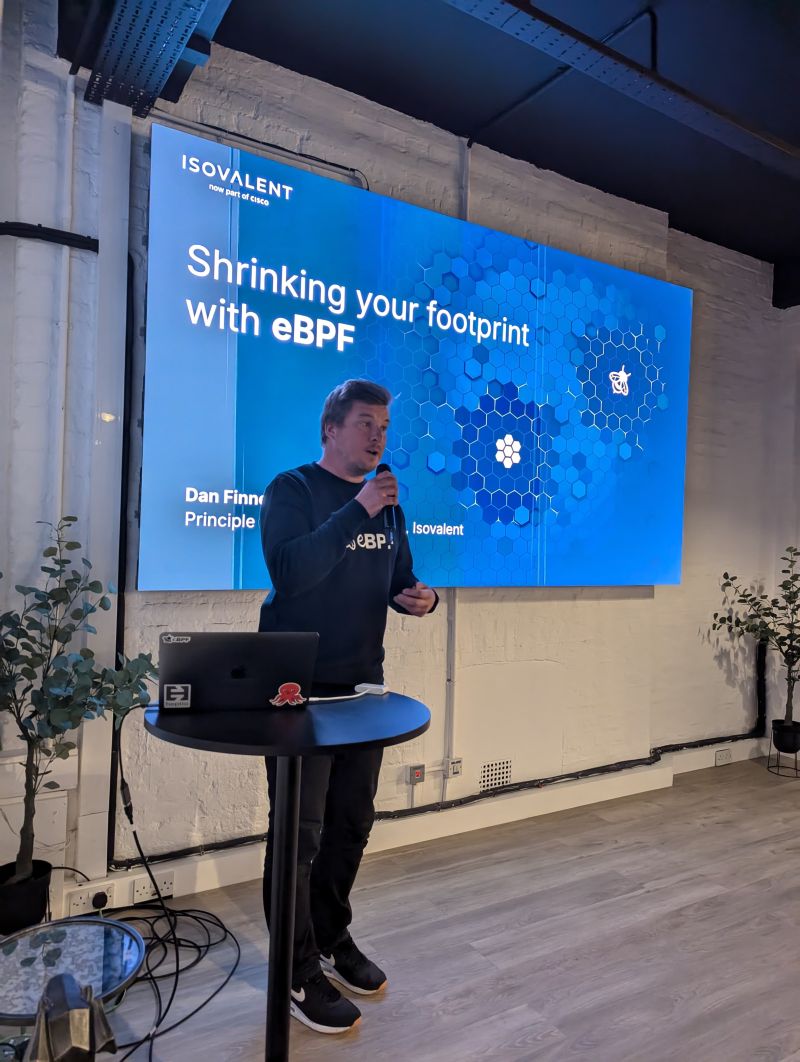
Daniel Finneran, Principal Community Advocate at Isovalent, highlighted how eBPF (Extended Berkeley Packet Filter) is transforming data center efficiency. Over the past decade, data centers have improved energy efficiency through virtualization, containerization, and Kubernetes. Now, eBPF is taking this evolution further by reducing reliance on additional hardware devices.
Finneran explained how eBPF can replace traditional hardware components like load balancers, firewalls, TAP devices, and IDS (Intrusion Detection Systems). As an open-source technology, eBPF empowers developers to create customized solutions rather than waiting for vendor implementations. He highlighted KEPLER, a cloud-native project that demonstrates eBPF’s potential in energy monitoring within Kubernetes clusters.
Practical Approaches to Green Computing
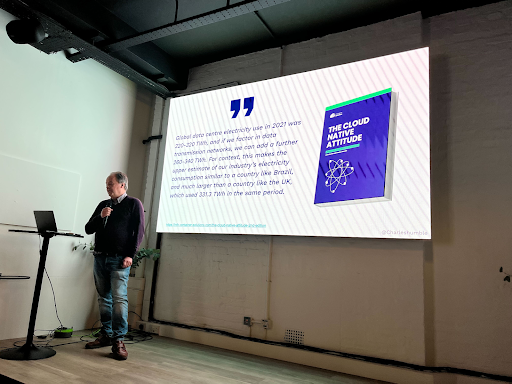
Charles Humble, a freelance technology consultant from Conissaaunce Limited, shared practical insights on implementing sustainable practices. While managed cloud services offer efficiency through high compute density, Humble emphasized the importance of applying green software principles across all environments.
He introduced the concept of energy proportionality, noting that even idle servers consume approximately half their maximum power. To optimize energy usage, Humble recommended:
- Maintaining at least 50% machine utilization across systems
- Eliminating “zombie” servers that consume resources without providing value
- Implementing regular audits
- Adopting a “LightSwitchOps” approach for non-global operations
- Using real-time carbon intensity tools, such as Electricity Maps, to optimize workload scheduling
Supply Chain Sustainability: The Missing Link
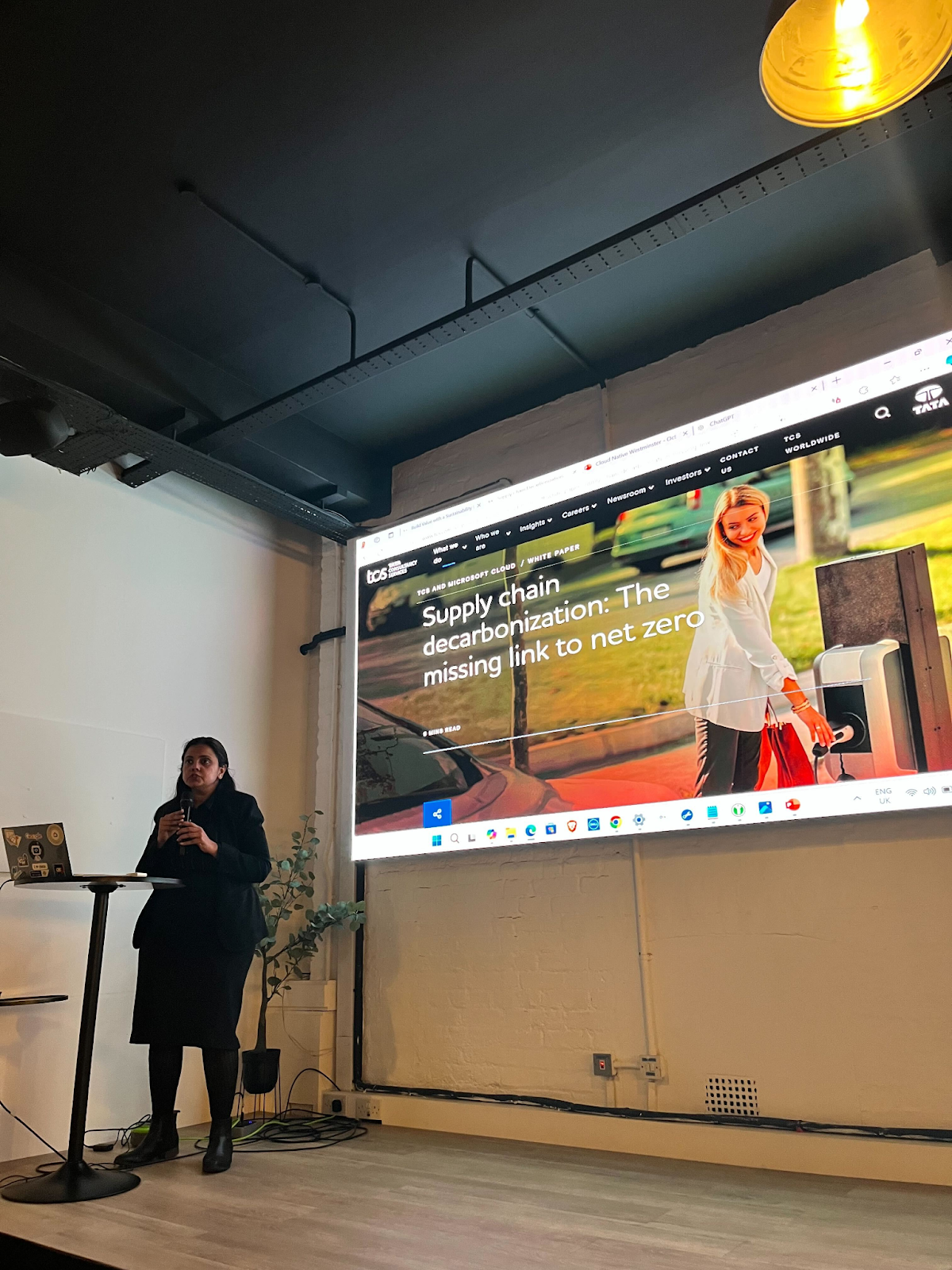
Dr. Swati Murthy, Practice Director of Sustainability at Tata Consultancy Services, addressed the crucial role of supply chain decarbonization in achieving net-zero targets. She highlighted current limitations in sustainability measurement frameworks, which often focus on enterprise-level ESG goals without considering industry-wide standards for cross-ecosystem sustainability outcomes.
Dr. Murthy proposed a comprehensive approach to embed sustainability throughout the design process, emphasizing the need to integrate environmental considerations from the ground up in supply chain management to drive meaningful impact across industries.

Thank you to all the speakers, attendees, and organizers for making this Cloud Native Westminster meetup a success! Here’s to fostering more sustainable practices in technology together! 💡💚 🌍
This inaugural London meetup marks a significant milestone in our community’s journey toward sustainable cloud-native practices. The diverse perspectives and practical insights shared by our speakers demonstrate the growing momentum behind green computing initiatives in the cloud-native space.
We extend our sincere gratitude to all attendees, speakers, and organizers who made this event possible. Stay tuned for more sustainability-focused events from the Cloud Native Westminster community!
For those looking to join this important initiative, the CNCF TAG Environmental Sustainability welcomes contributors who want to help shape a greener future for cloud native technologies. Together, we can build a more sustainable technological landscape for generations to come.